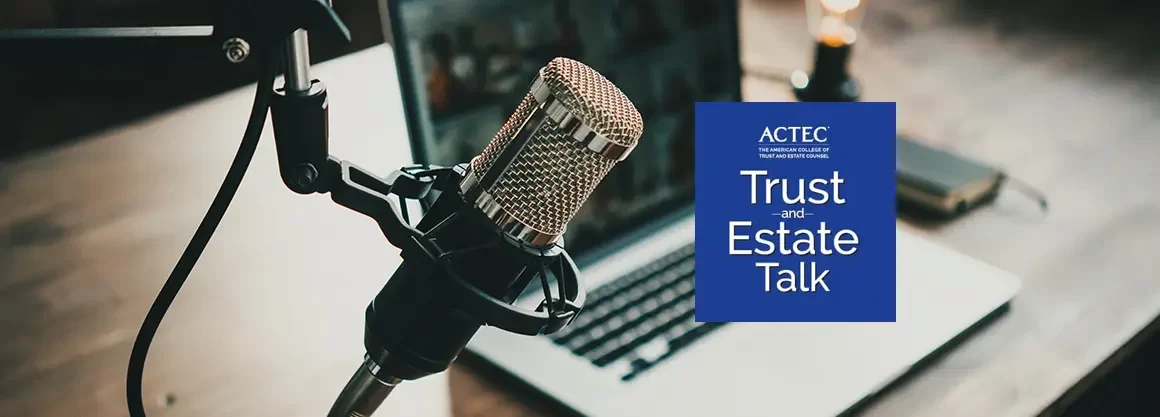Navigating trusts and estates can spark conflicts of interest on multiple fronts. In this episode, I discuss conflicts of interest involving lawyers and their clients. In February, Prather Ebner Wilson Partner Dan Ebner joined the ACTEC Trust & Estate Talk podcast to share his views on one specific area: conflicts of interest involving lawyers and their clients.
During the episode, “Conflicts of Interest in T&E Litigation,” Dan discusses conflicts of interest as related to both current and former clients. Model Rules, Rule 1.7 applies to both instances and helps guide attorneys through any conflicts of interest, Dan shared with host Toni Ann Kruse, ACTEC Fellow from New York.
“So, these rules can really be boiled down to a few simple statements: (1) a lawyer cannot act adverse to a current client; (2) a lawyer should be extremely careful about representing multiple clients who appear to be similarly situated because their interests may diverge; (3) a lawyer cannot act adverse to a former client in a substantially related matter; and (4) a lawyer cannot use confidential information obtained from a former client to the client’s detriment,” Dan said. “But all of these prohibitions can be overcome – or almost all of these prohibitions can be overcome – with informed consent. However, a lawyer should be very cautious in those instances.”
Ultimately, “while conflicts of interest are a subject that maybe we’d sometimes rather not think about, it’s something that attorneys really need to be well versed in to avoid both potential ethics issues and potential disqualification in a case,” Dan says.
Read the full transcript on the ACTEC website.
A partner at Prather Ebner Wilson, Dan Ebner focuses his practice on representing trustees, beneficiaries, not-for-profit entities, and shareholders in closely held businesses in litigation involving wills, trusts, and breach of fiduciary duty. He also represents fiduciaries in uncontested trust administrations, probate proceedings, and guardianships.

